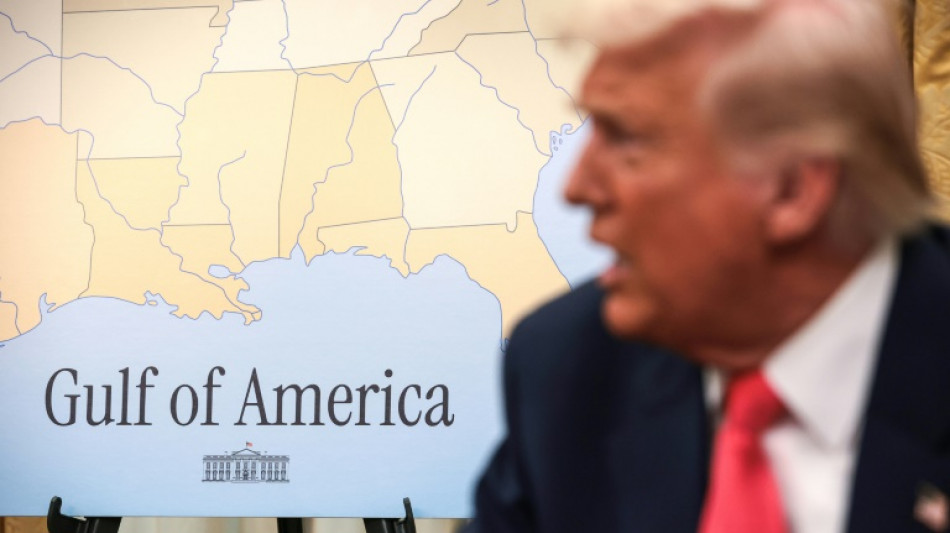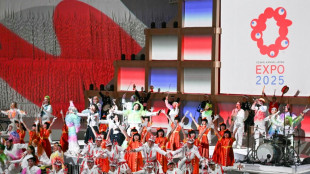
Judge orders White House to restore AP access

A US federal judge ordered the White House on Tuesday to restore the Associated Press's access to President Donald Trump's official events, saying it had no right to bar media for their "viewpoints."
AP journalists and photographers have been barred from the Oval Office and from traveling on Air Force One since mid-February because of the news agency's decision to continue referring to the "Gulf of Mexico" -- and not the "Gulf of America" as decreed by Trump.
District Judge Trevor McFadden said the "viewpoint-based denial of the AP's access" was a violation of the First Amendment to the US Constitution, which guarantees freedom of speech and of the press.
"If the Government opens its doors to some journalists -- be it to the Oval Office, the East Room, or elsewhere -- it cannot then shut those doors to other journalists because of their viewpoints," McFadden said.
"The Government has singled out the AP because of its refusal to update the Gulf's name in its Stylebook," the judge said. "The Government offers no reason besides the Gulf issue for the exclusion."
He ordered the White House to "immediately rescind the denial of the AP's access to the Oval Office, Air Force One, and other limited spaces... when such spaces are made open to other members of the White House press pool."
The judge put off implementation of his order for five days to give the White House time to reply or to file an appeal with a higher court.
AP spokeswoman Lauren Easton welcomed the court's decision.
"Today's ruling affirms the fundamental right of the press and public to speak freely without government retaliation," Easton said in a statement. "This is a freedom guaranteed for all Americans in the US Constitution."
The AP filed suit against the White House after it began denying access to some of Trump's official events to the wire service's reporters and photographers.
At a hearing last month before McFadden, a Trump appointee, AP lawyer Charles Tobin said the news agency was the victim of "abject retaliation" by the White House.
- 'Economically hemorrhaging' -
Since Trump returned to the presidency, his administration has sought to radically restructure the way the White House is covered, notably by favoring conservative podcasters and influencers.
Two weeks after barring the AP, the White House stripped journalists of the nearly century-old power to decide which of the profession's own number will be members of a pool of reporters and photographers covering presidential events.
"The White House changed its policy to a rotation system that happens to exclude the AP," Tobin said.
In his ruling, McFadden said "access restrictions must be reasonable and not viewpoint based."
"So while the AP does not have a constitutional right to enter the Oval Office, it does have a right to not be excluded because of its viewpoint," he said.
McFadden also noted that the restrictions have "cut deeply into the AP's business, both financially and in terms of lost opportunities."
"The AP has been economically hemorrhaging for the last two months, and its condition will only worsen as its customers flee to other news services absent injunctive relief," he said.
In its style guide, the AP notes that the Gulf of Mexico has "carried that name for more than 400 years" and the agency "will refer to it by its original name while acknowledging the new name Trump has chosen."
"As a global news agency that disseminates news around the world, the AP must ensure that place names and geography are easily recognizable to all audiences," the AP said.
The 180-year-old organization has long been a pillar of US journalism and provides news to print, TV and radio outlets across the United States and around the world.
F.Colin--PS

 London
London

 Manchester
Manchester
 Glasgow
Glasgow
 Dublin
Dublin
 Belfast
Belfast
 Washington
Washington
 Denver
Denver
 Atlanta
Atlanta
 Dallas
Dallas
 Houston Texas
Houston Texas
 New Orleans
New Orleans
 El Paso
El Paso
 Phoenix
Phoenix
 Los Angeles
Los Angeles



